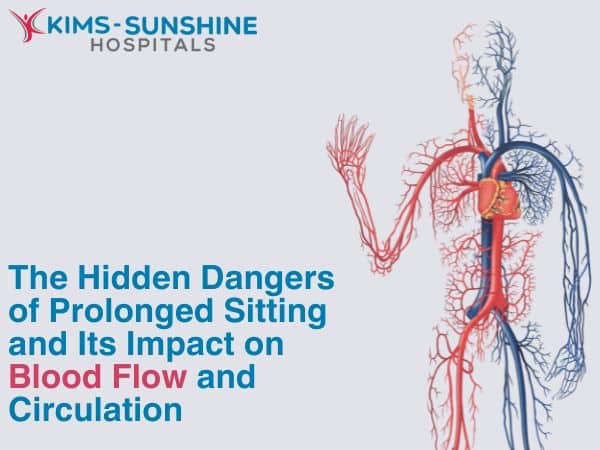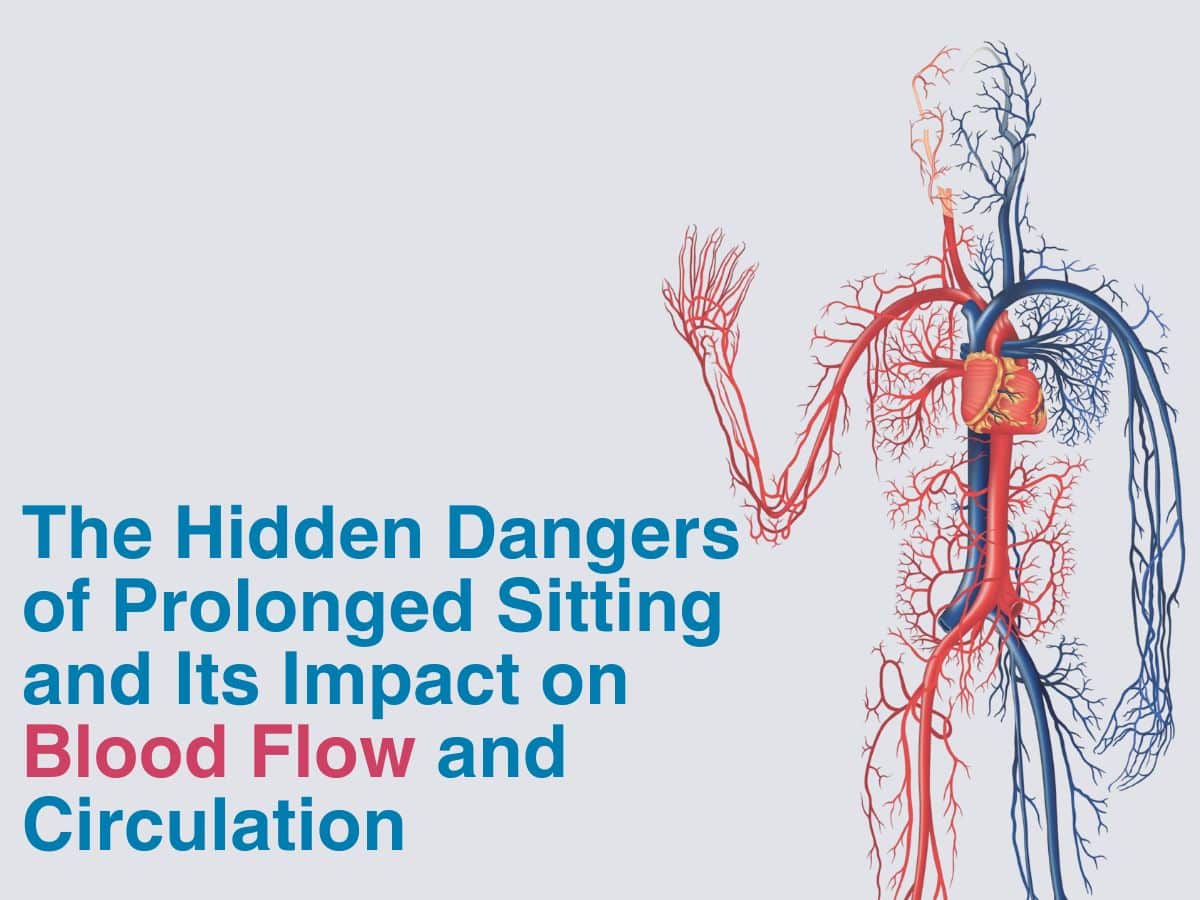
The Hidden Dangers of Prolonged Sitting and Its Impact on Blood Flow and Circulation

Today, many of us are desk-bound and spend several hours in a day sitting, commuting or relaxing.
This kind of sedentary lifestyle can have adverse effects on both our blood flow and circulation.
In this blog, we dive into the often-overlooked consequences of prolonged sitting and explore ways to mitigate its effects.
Prolonged Sitting and Its Effect on Vascular Health
Sitting for extended periods can wreak havoc on your vascular system. When you sit for long hours, blood flow throughout your body slows down significantly.
This reduction in circulation can lead to a cascade of health issues, affecting everything from your heart to your brain.
One of the most alarming consequences is the increased risk of blood clots, particularly deep vein thrombosis (DVT).
These clots typically form in the legs due to the lack of muscle movement and reduced blood flow.
In severe cases, these clots can break loose and travel to the lungs, causing a potentially life-threatening pulmonary embolism.
Moreover, prolonged sitting can contribute to the development of venous insufficiency.
This condition occurs when the veins in your legs struggle to pump blood back to your heart efficiently, often resulting in swollen ankles, varicose veins, and a heavy feeling in the legs.
Impact of Prolonged Sitting on Blood Flow to the Brain
Perhaps one of the most concerning effects of prolonged sitting is its impact on cerebral blood flow.
Your brain requires a constant supply of oxygen-rich blood to function optimally.
When you sit for extended periods, the blood flow to your brain can decrease, potentially affecting cognitive function over time.
Research suggests that this reduced cerebral blood flow might be linked to an increased risk of neurodegenerative diseases in the long term.
While more studies are needed to fully understand this connection, it’s clear that keeping your brain well-supplied with blood is crucial for maintaining cognitive health.
Circulation Problems from Sitting at a Desk All Day
For office workers, the risks associated with prolonged sitting are particularly relevant.
Spending 8 or more hours a day at a desk can lead to numerous circulation problems, including:
- Slowed metabolism
- Increased blood pressure
- Reduced muscle activity, especially in the legs
- Poor posture, which can further impede blood flow
These issues can manifest as symptoms of poor circulation, such as swollen ankles or feet, numbness or tingling in extremities, cold hands or feet, and even fatigue or brain fog.
How to Improve Blood Circulation During Long Sitting Periods
While the effects of prolonged sitting can be concerning, there are several strategies you can employ to improve your blood circulation:
- Take regular standing and walking breaks: Aim to stand up and move around for at least 5 minutes every hour.
- Use a standing desk intermittently: Alternate between sitting and standing throughout your workday.
- Perform simple exercises at your desk: Try leg lifts, ankle rotations, or seated marches to keep blood flowing.
- Maintain good posture: Sit with your feet flat on the floor and your back straight to promote better circulation.
- Stay hydrated: Drinking plenty of water helps maintain blood volume and supports healthy circulation.
- Consider compression socks: These can help improve blood flow in your legs during long periods of sitting.
Impact of Inactivity on Blood Flow and Heart Health
It’s crucial to understand that the effects of prolonged sitting extend beyond immediate discomfort.
Over time, a sedentary lifestyle can significantly impact your heart health. Inactivity is associated with an increased risk of cardiovascular diseases, partly due to its negative effect on blood flow and arterial function.
Regular movement helps keep your arteries flexible and promotes healthy blood flow.
When you sit for extended periods, your arteries can become less pliable, potentially leading to arterial dysfunction over time.
This can contribute to high blood pressure and an increased risk of heart disease.
Conclusion
The impact of prolonged sitting on blood flow and circulation is a serious health concern in our increasingly sedentary society.
From increased risk of blood clots to potential cognitive impacts, the consequences of sitting for extended periods are far-reaching.
However, by understanding these risks and taking proactive steps to improve our circulation, we can mitigate many of these effects.
Remember, small changes – like taking regular breaks to stand and move, or performing simple exercises at your desk – can make a significant difference in your overall health.
So, the next time you find yourself sitting for hours on end, take a moment to stand up, stretch, and get your blood flowing. Your body – and your brain – will thank you for it.
Frequently Asked Questions
Remember, while these effects can be serious, many can be mitigated by regularly incorporating movement into your daily routine and being mindful of your sitting habits.

Dr. Narendranadh Meda
MBBS, MS, DNB (Vascular)
Consultant Vascular & Endovascular Surgeon






